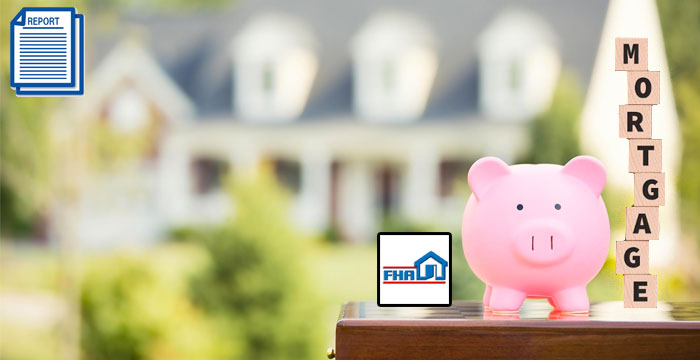
Report Shows What an ‘Average’ FHA Borrower in New Jersey Looks Like

Once per quarter, the Department of Housing and Urban Development (HUD) sends a report to Congress with details relating to the FHA loan program.
Among other things, this report gives us some insight into the average credit score and debt-to-income ratio for FHA borrowers in New Jersey and elsewhere in the U.S. Here are some highlights from the June 2018 report.
Average Credit Score Among FHA Borrowers in 2018
Credit scores are a three-digit number based on information within a person’s credit reports. Banks and lenders use these and other tools to evaluate loan applicants, and also to determine interest rates. In short, a higher score can help you qualify for a mortgage loan with a good rate.
According to the HUD report, FHA borrowers in New Jersey and nationwide had an average credit score of 670 during the second quarter of 2018.
It’s important to note the distinction between “average” and “minimum” credit scores. The 670 number cited in the report represents the average for all loans originated during that time period. But the minimum score for an FHA loan in New Jersey is significantly lower than that. According to current program guidelines, borrowers can qualify for maximum (96.5%) financing under the FHA loan program as long as they have a credit score of 580 or higher.
In fact, this latest HUD report states: “Share of less than 640 credit score rose to 25.9 percent.” That means roughly a quarter of all FHA loans during the second quarter of this fiscal year went to borrowers with scores below 640.
This is one of the reasons why some New Jersey home buyers use this program in the first place. It’s fairly flexible when it comes to borrower qualification criteria.
Average Debt-to-Income Ratio
HUD’s second-quarter report also showed the average debt-to-income ratio among FHA loan borrowers in New Jersey and nationwide. The debt-to-income (DTI) ratio is just a comparison of the amount of money a person or household earns each month, and the amount they spend on their recurring debts.
The average debt-to-income ratio among FHA borrowers during the second quarter was 43%. That was the highest average recorded over the last few years (to date).
The proportion of FHA borrowers with DTI ratios above 50% increased from 23% in 2018 Q1 to 24.9% in 2018 Q2. This means that more people with relatively high debt ratios are qualifying for the program. Some of those same borrowers might have had trouble qualifying for conventional financing due to their DTI ratios.
About 40% of Borrowers Used Down Payment Assistance
Borrowers who use the FHA loan program to buy a home in New Jersey are required to make a down payment of at least 3.5% of the appraised value or purchase price. That means they can finance up to 96.5% of the home purchase, as long as they meet the basic requirements for the program.
Most FHA borrowers pay their down payments from their own funds (which might include gift money from a family member or other approved sources). A smaller percentage of borrowers use down payment assistance programs, like those offered by government agencies. According to HUD’s latest report to Congress, 39.3% of FHA borrowers used some form of a down payment assistance program to help cover their upfront investment. The other 60.7% did not use such assistance.
This report gives us some insight into the “typical” FHA home buyer in New Jersey. It also shows some of the flexibility that is built into the program in terms of qualification criteria.
Explore your options: The FHA loan program is just one of several financing options available to home buyers in New Jersey. Every program has its own unique features and advantages. Please contact us if you’d like to know which type of mortgage loan might work best in your situation.